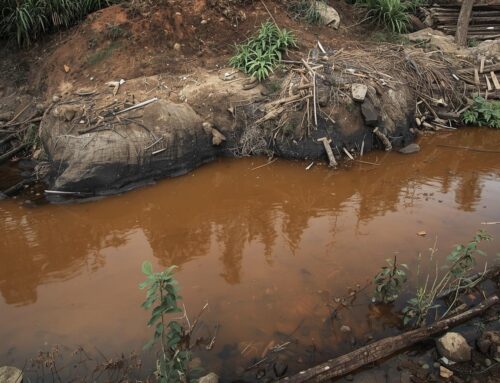Government has finally placed a ban on light plastic materials with less than 20 microns (one millionth of a meter in terms of density): such as ones used in packaging sugar, gari and porridge.
The ban takes effect from November 1, Minister of Environment, Innovation Science and Technology, Mahama Ayariga has announced.
Manufacturers of these plastic bags, he said, must ensure that all products that do not meet the standards are disposed of before the November deadline.
“We have placed a ban on up to 20 microns. Nobody can manufacture plastic products of below 20 microns,” he said.
He further stated: “Every plastic that is produced for packaging, you have to put a biodegradable material in it so that the plastic that would be produced would be biodegradable.”
Mahama Ayariga insisted, “after 90 days [starting from August 1] no plastic should be in the market unless it is biodegradable.”
“The ones that they put Gari, kulikuli, those products – the plain, transparent ones – you see that they are so light and when the wind blows they float, it’s because they have very low microns and they are so light so managing it is so difficult so we need to increase the micron level.”
This forms part of government’s efforts at addressing the sanitation challenges the country is grappling with.
President John Mahama early this month warned that Ghana may be forced to take after the example of Rwanda and completely ban the use of plastics if the polluting effects of the non-biodegradable substance is not contained.
But the Environmental Service Providers Association was concerned about health implications of the ban and the loss of jobs.
Ghana was recently rated the 7th dirtiest country in the world due to its poor sanitary conditions, and this followed a recent deadly flood in Accra attributed to poor and choked drainage system.
Vice President Kwesi Amissah-Arthur following the disaster has been pushing for a national debate on the usage of plastic materials in the country.
According to him, it has become imperative for a national consensus to be built on the use of the polythene product.
The insanitary condition in the country, according to some experts, are to a large extent being exacerbated by the unbridled disposal of waste, particularly, plastics.
Environmentalists have been debating the effect of plastic products in Ghana, especially in choked gutters. They believe it was one of the major causes of the recent flood in the country which led to the death of over 150 people.
Meanwhile, Mr. Ayariga said what is still under discussion is “the length within which the product should not degrade and beyond which it automatically degrades into the environment. Plastic manufacturers according to him have been engaged extensively to capture their inputs and they are satisfied with the decisions that have been taken so far.”
Source : http://www.myjoyonline.com/business/2015/July-30th/government-bans-light-plastic-materials.php





Leave A Comment